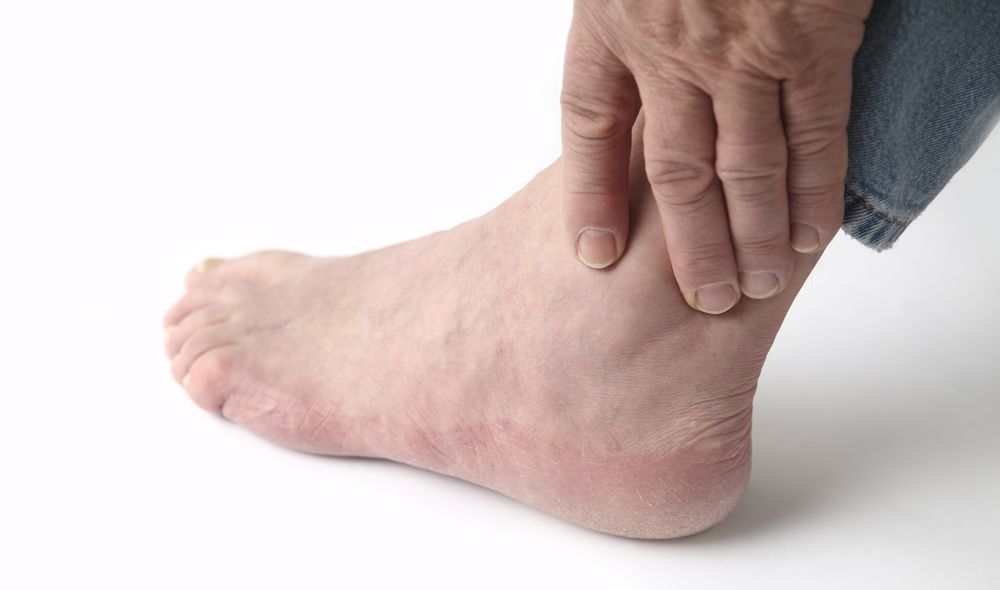Know More about Gout Causes, Symptoms, and Treatments
The general term called ‘Gout’ is often used for several conditions that are caused due to uric acid buildup. This kind of buildup can usually affect our feet.
If you have gout, then probably you will feel pain and swelling within your joints of the foot, particularly on your big toe. Because of intense and sudden pain, or any gout attack, it will make you feel as if your foot is just on fire.
What is gout?
Any podiatrist Irvine will try to place the problem of gout under “arthritis” which is an umbrella term used for many different joint pains and joint diseases. Some arthritis forms can inflame joints, while a few others may not. Gout is a very common inflammatory arthritis form. It is because of a crystal that is called uric acid.
Gout can cause swelling and pain in one or also more joints. Typically, it affects your big toe. However, it is also found in many other joints like the ankle, knee, hand, foot, wrist, and elbow.
Symptoms of gout
A few people may have an extra uric acid present in their blood without any symptoms. This is known as asymptomatic hyperuricemia. In case of acute gout, quickly symptoms may appear because of the uric acid crystals buildup in the joint and that may last for three to ten days.
Gout has several characteristics and symptoms like:
- Severe joint pain
- Swelling
- Redness
- Pain that may develop in your center of the night
- Continuous discomfort
- Soreness
- Aches
- Sensitivity in the joint
- Fever and fatigue
- Stiffness.
- Tenderness, even to any light touch
- Warmth
How long will your gout attack last?
Not taking any treatment from Irvine podiatrist for gout can become chronic. Eventually, a hard lump called tophi can develop in the joints and also on your skin and other soft tissue surrounding it. All such deposits may damage your joints permanently. By taking prompt treatment you can prevent it to become chronic.
What causes gout?
The breakdown of purines, which can be present in some meals and beverages, results in the production of uric acid in the human body. This natural byproduct goes through your kidneys and out of your body when you pee.
The body can manufacture extra uric acid at times. Or the kidneys are unable to deal with it. Uric acid crystals may form in the joints when the body’s uric acid levels are too high, a condition known as hyperuricemia. Gout is caused by sharp, needle-like crystals. Many persons with high uric acid levels, on the other hand, never develop gout.
How a doctor will diagnose gout?
If you have severe or sudden pain in your joint, then you must talk to your general medical doctor who may send you to any rheumatologist, who specializes in gout or other types of arthritis.
Orange County podiatrist will consider many other things while confirming gout:
- Symptoms: The doctor may ask you to explain your symptoms, including how frequently they occur and how often they last.
- Physical examination: Your doctor will search for edema, redness, and warmth in the affected joint(s).
- Blood work: The quantity of uric acid present in your blood can be measured with a test.
- Imaging tests: X-rays, ultrasound, and magnetic resonance imaging (MRI) may be used to capture photographs of the afflicted joint(s).
- Aspiration: A needle may be used to remove fluid from your joint. A team member can use a microscope to examine for any uric acid crystals or another issue.
Treatment of gout
Several common treatments and care options are available for gout. Depending upon the severity of your development of gout following treatments can be offered.
-
Non-invasive treatment
Once a podiatrist has diagnosed you with gout, then usually oral medications will be prescribed. Your symptoms will reduce significantly within a couple of days. Some people may experience improvement within even a few hours. Along with oral medicines, you may be instructed to make changes in your diet for reducing your food with a high level of purine to reduce your production of uric acid.
-
Invasive treatment
If your case is very severe because of recurrent gout, then doctors may suggest surgery too. Surgery may be required for removing the uric acid crystals that are present in the joint for preventing any further damage.
Usually, most podiatrists will always prefer to go for certain conservative options first. They will suggest surgery only when it becomes absolutely necessary.
-
Home remedies
Lots of home remedies also exist that are supposed to alleviate and also reduce your gout inflammation, flare-up, and formation.
All these remedies will not fight gout directly, but often they can help support your proper kidney function, help lower uric acid levels, and reduction of inflammation, which all can help to prevent gout formation and also impact.
Certain foods, minerals, and beverages can work as home remedies that can be included in your regular diet such as:
- Magnesium
- Ginger
- Turmeric
- Apple cider vinegar
- Lemon juice
- Warm water
- Cherries
- Tart cherry juice
- Celery and celery seeds
- Dandelion
- Hibiscus
- Nettle tea
However, before you change your diet you must consult any medical professional. A few other home applications that may help to treat gout can be hot or cold-water applications and Epsom salt baths.




